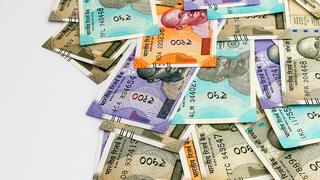It would be a truism to state that during the past decade or so increasing use of technology has democratised the process of trading in the stock markets.
The advent of online trading has thrown open the doors of what was once the preserve of a few brokers and well-heeled investors. Today, the middle-class enthusiastically participates in the market with a click of the mouse.
However, online trading is but one example of the influential role played by technology. The marriage of technology and the banking sector has far-reaching effects on the consumer's financial life.
Here are a few examples: The widespread adoption of National Electronic Fund Transfer has enabled individuals to avail the following:
Cash management: Today, idle balances in savings bank accounts can be funnelled into short-term fixed deposits offered by the same bank or into liquid or ultra-short-term debt funds. This helps clients earn some additional income with minimal sacrifice of liquidity.
Systematic Investment Plans (SIPs): At the turn of the century, a few mutual funds and pioneering financial planners had taken efforts to implant in investors' minds this delightfully simple and effective concept.
However, many investors hesitated to take the plunge merely because it was a tedious process to fill up a large number of cheque leaves at one go.
Today one can undertake SIPs with a tenure of 25 years by merely issuing standing instructions. This was unthinkable earlier.
The proliferation of online mutual fund portals has enabled knowledgeable investors to build an eclectic portfolio on their own, without being badgered by the hard-selling that distributors often indulge in. Again, bank agnostic payment gateways means that an investor is not tied to one bank while making payment (subject to conditions laid down by the SEBI).
While credit cards and debit cards have gained acceptance for offline transactions, security issues made people wary about using them online. However, the introduction of Virtual Credit Cards is poised to change that. This is akin to a disposable credit card valid only for a single transaction. Once used, the card ceases to exist and hence cannot be misused.
E-wallets and mobile payment systems: The Reserve bank of India has recently permitted payments of up to Rs 50,000 through mobile phones. Once this gains currency, even users who are not net-savvy will be spared the trouble of carrying wads of cash while making purchases. This is the next phase of evolution after ATMs and third-party fund transfers, which are available through Internet banking.
Utility Bills: Many of us may not remember the last time we stood in line to pay our electricity or phone bills. Online bill payments can be conducted in a jiffy today, saving us considerable time and effort. Even five years ago it was inconceivable that so many utilities would fall under this ambit.
Taxation: While the pain of paying tax cannot be avoided, the online tax payment facility has certainly made the payment process more convenient. Besides, online tax planning portals have, in some cases, obviated the need for tax advisors.
Insurance: The disclaimer that “insurance is the subject matter of solicitation” may be severely tested by the onset on online insurance plans. Unlike the traditional plans, which required concerted sales efforts on the part of agents, the ultra-low-premium for online term insurance plans have resulted in a rising tide of interest on the part of consumers despite the lack of agents. Such plans are also favoured by Certified Financial Planners as they provide reasonably high insurance cover for the lowest possible cost.
Various applications of technology have proved to be game-changers in personal finance over the past few years. However, while the platform has been laid, the best is yet to come, as increasing adoption will lead to positive network effects in the form of more applications, greater geographical coverage and reduced costs of providing the same. Once the Universal Identification Number (UID) becomes ubiquitous, financial inclusion too will get a boost, which in turn could provide a further fillip to such services.
We can wind up by stating that the personal finance space is one arena where we will not have too many nostalgia buffs longing for the “good old days”.








Comments
Comments have to be in English, and in full sentences. They cannot be abusive or personal. Please abide by our community guidelines for posting your comments.
We have migrated to a new commenting platform. If you are already a registered user of TheHindu Businessline and logged in, you may continue to engage with our articles. If you do not have an account please register and login to post comments. Users can access their older comments by logging into their accounts on Vuukle.